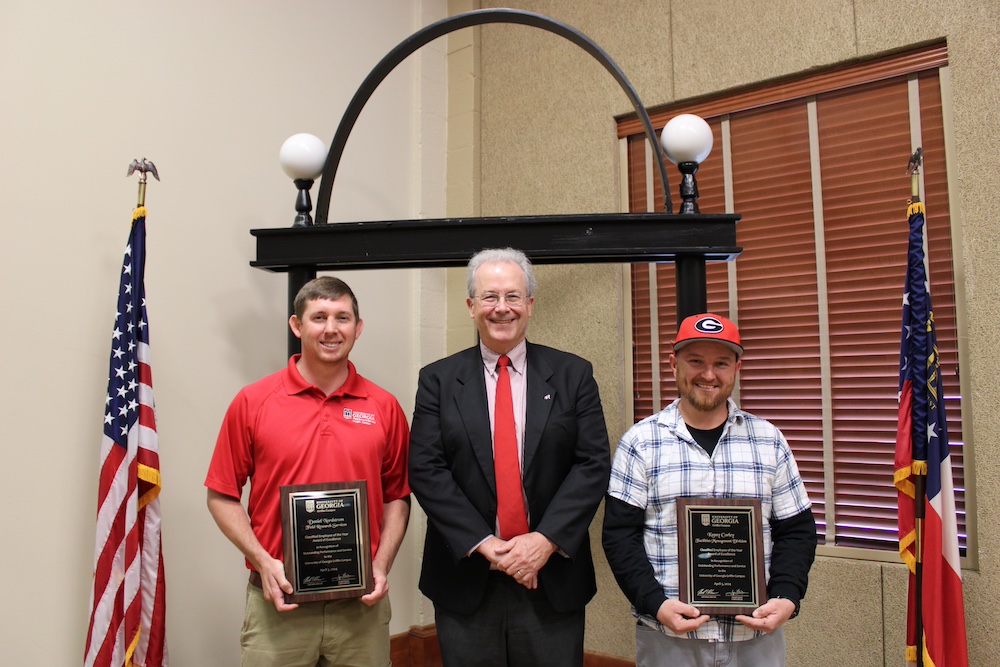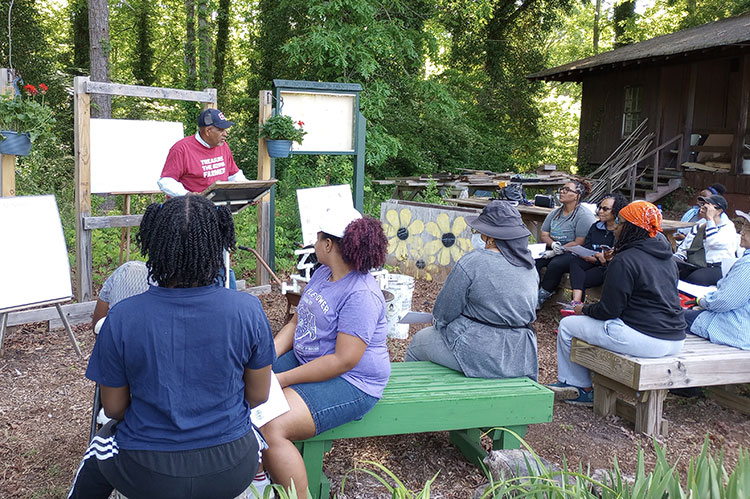Imagine, for a moment, a world without pesticides.
Insects would roam freely through your home, lawn and garden. They would feast happily on flour and other stored food, your prized tomatoes and gorgeous petunias.
Produce sections and grocery shelves might be nearly bare for much of the year. Food costs, if you could find the food you wanted, would skyrocket.
"Without pesticides, Americans couldn't possibly have the low-cost, abundant supply of fresh food we do now," said Paul Guillebeau, an entomologist with the University of Georgia Extension Service.
The government, mostly through the Environmental Protection Agency, works hard to keep us safe from agricultural pesticide overuse, he said.
In 1958, Congress passed the Delaney Clause. It caused fresh and processed foods to be regulated in different ways. Until recently, pesticide safety standards were based on tolerances in adults, not the people pesticides could affect the most.
The Delaney Clause could keep ketchup out of stores due to traces of pesticide. But tomatoes from the same farm could sell at markets everywhere.
Now, though, the Food Quality Protection Act, passed in late July, changes all that. It applies the same pesticide-residue standards to both processed and fresh foods, Guillebeau said. And it sets safety standards to protect children and infants.
"Many people think every bite of food has pesticide residues on it," he said. "But in fact, the Food and Drug Administration can't find any trace of pesticides in most of the samples they test."
But that's based on commercial pesticide use and produce sold at retail outlets. Homeowners may use pesticides very differently.
"In my experience, homeowners and gardeners don't pay nearly enough attention to labels on pesticides," Guillebeau said. "And when they try to read and follow the directions, the label may be vague about how much is needed for it to work or how to use the chemical."
As a result, he said, many people get far more exposure to pesticides at home than they do from food they buy. There's a push to improve labeling on home products now, he said.
To help reduce exposure around your home, he said, use as little of any pesticide as you can. And keep containers out of children's reach.
Rinse any homegrown vegetables with fresh water before eating them. Wash flowers or greenery, too, before bringing them inside. A good rinse can remove most of any residue that might be on the plant or produce.
Guillebeau said the FQPA will take into account the total amount of pesticides we're exposed to in all situations, not just through residues in foods.
So how many people seek treatment for pesticide injury in a year?
The Consumer Product Safety Commission looked into that. In 1994, about 16,000 people told emergency room doctors or nurses their injury was from pesticides. But nearly a million people were injured on stairs. In our everyday lives, pesticides are a very small danger.
For now, the FQPA is an act. The EPA still has to write the regulations the act authorizes. Until those are written, Guillebeau won't even guess about how it will ultimately affect us all.
"I can see it putting more stringent protective standards on all types of pesticides," he said. "The U.S. food supply is already the safest in the world. But this new act ensures our safety based on the most sensitive members of our population."






